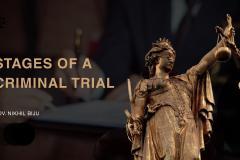Unit III: Fundamental Rights (Part III) Concept and evolution of Fundamental Rights. Right to Equality, Right to Freedom, Right against Exploitation. Freedom of Religion, Cultural and Educational Rights. Right to Constitutional Remedies (Art. 32, 226). Landmark case laws (Kesavananda Bharati, Maneka Gandhi, etc.). This class is designed for students who wish to develop a strong foundation in civil liberties and human rights within the Indian legal system. The focus will be on the concept, evolution, and significance of Fundamental Rightsguaranteed under Part III of the Constitution. Students will study key rights such as the Right to Equality, Right to Freedom, Right against Exploitation, Freedom of Religion, Cultural and Educational Rights, and the Right to Constitutional Remedies. The course will emphasize the judicial interpretation of these rights in landmark cases such as Kesavananda Bharati v State of Kerala, Maneka Gandhi v Union of India, and Indira Gandhi v Raj Narain.
Students are required to bring their bare act and a case law compendium/notes to follow judicial reasoning closely. By the end of this class, they will not only understand the scope and limitations of Fundamental Rights but also appreciate how judicial creativity has expanded these rights to include concepts such as the right to privacy and the right to live with dignity.







